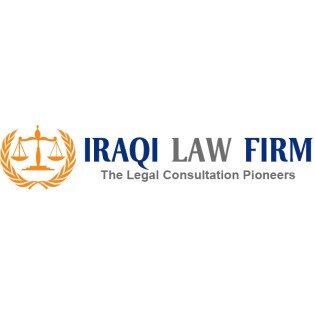Best Licensing Lawyers in Iraq
Share your needs with us, get contacted by law firms.
Free. Takes 2 min.
Or refine your search by selecting a city:
List of the best lawyers in Iraq
About Licensing Law in Iraq
Licensing law in Iraq relates to the authorization and regulation of various activities, assets, and businesses. This includes sectors such as oil and gas, telecommunications, trademarks, and intellectual property. Given Iraq's reliance on natural resources, licensing serves as a critical regulatory mechanism to ensure fair allocation and utilization. These laws are structured to allow local and foreign businesses to operate under certain legal frameworks and ensure compliance with regulatory standards.
Why You May Need a Lawyer
Legal assistance in licensing is crucial for navigating the complex landscape of Iraqi regulations. You might require a lawyer in situations such as establishing a new business, particularly in regulated industries like oil and gas, or when negotiating international agreements. Legal experts can aid in obtaining necessary permits, ensure adherence to tax obligations, and help resolve disputes related to licensing terms and conditions. Furthermore, understanding local practices and avoiding legal pitfalls often necessitates professional legal counsel.
Local Laws Overview
Iraq's licensing framework is layered and varies significantly by sector. Key industries like oil and gas are extensively regulated, with the Ministry of Oil overseeing operations and licensure. Telecommunications licenses are issued by the Iraqi Communications and Media Commission. For businesses involving trademarks or intellectual property, the Central Organization for Standardization and Quality Control provides relevant guidelines. Compliance with these laws is mandatory to avoid sanctions or legal disputes.
Frequently Asked Questions
How do I obtain a business license in Iraq?
You need to register your entity with the relevant governmental authority, usually beginning with the Companies Registry and following industry-specific licensing agencies.
Are there specific licenses required for the oil and gas industry?
Yes, the Ministry of Oil regulates exploration and production activities, requiring agreements and licenses specific to these industries.
What are the penalties for operating without a license?
Operating without the required licenses can lead to heavy fines, business cessation, and legal action, depending on the severity and industry involved.
Is foreign ownership allowed in Iraq?
Yes, but it is subject to certain restrictions and requirements depending on the industry and any existing international agreements.
How can I protect my intellectual property in Iraq?
Register your intellectual property through the Central Organization for Standardization and Quality Control to ensure protection under local laws.
What are the telecommunications licensing requirements?
The Iraqi Communications and Media Commission issues licenses, and compliance with technical and operational standards is required.
Do licenses have an expiration date?
Yes, most licenses are time-bound and require renewal upon expiration. The specific duration can vary by industry.
Can licenses be transferred to another entity?
This depends on the type of license and industry. Some licenses may be transferable with governmental approval, while others may not.
What documentation is needed for license application?
Common documents include a business plan, financial statements, proof of identity, and other industry-specific requirements.
How long does the licensing process take?
The timeline can vary widely depending on the license type and the efficiency of the relevant authority, ranging from weeks to several months.
Additional Resources
For more information, consider reaching out to the following bodies:
- Ministry of Oil for energy sector licensing
- Iraqi Communications and Media Commission for telecommunications
- Central Organization for Standardization and Quality Control for intellectual property and standardization issues
- Local chambers of commerce for approvals and business setup guidance
Next Steps
If you require legal assistance in licensing matters in Iraq, consider the following steps:
- Conduct research to identify experienced local attorneys specializing in licensing law.
- Prepare all relevant corporate documentation, clearly outlining your business plans and objectives.
- Schedule a consultation to discuss your specific needs and receive expert legal advice.
- Stay informed about any changes in local law that could impact your licensing status.
Lawzana helps you find the best lawyers and law firms in Iraq through a curated and pre-screened list of qualified legal professionals. Our platform offers rankings and detailed profiles of attorneys and law firms, allowing you to compare based on practice areas, including Licensing, experience, and client feedback.
Each profile includes a description of the firm's areas of practice, client reviews, team members and partners, year of establishment, spoken languages, office locations, contact information, social media presence, and any published articles or resources. Most firms on our platform speak English and are experienced in both local and international legal matters.
Get a quote from top-rated law firms in Iraq — quickly, securely, and without unnecessary hassle.
Disclaimer:
The information provided on this page is for general informational purposes only and does not constitute legal advice. While we strive to ensure the accuracy and relevance of the content, legal information may change over time, and interpretations of the law can vary. You should always consult with a qualified legal professional for advice specific to your situation.
We disclaim all liability for actions taken or not taken based on the content of this page. If you believe any information is incorrect or outdated, please contact us, and we will review and update it where appropriate.
Browse licensing law firms by city in Iraq
Refine your search by selecting a city.

















